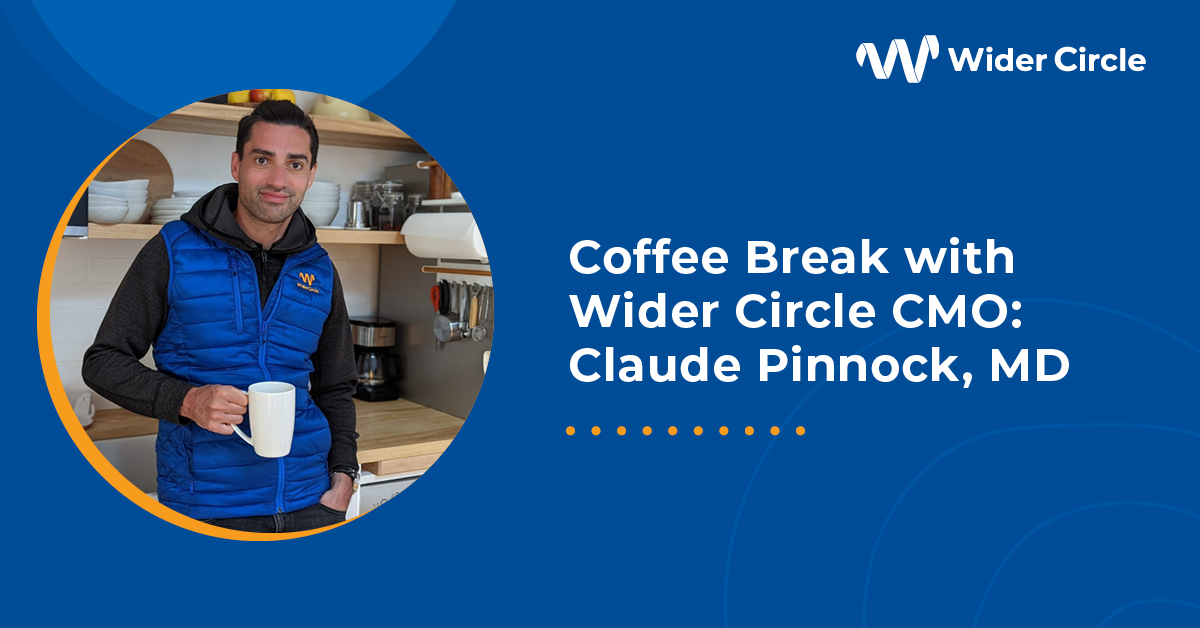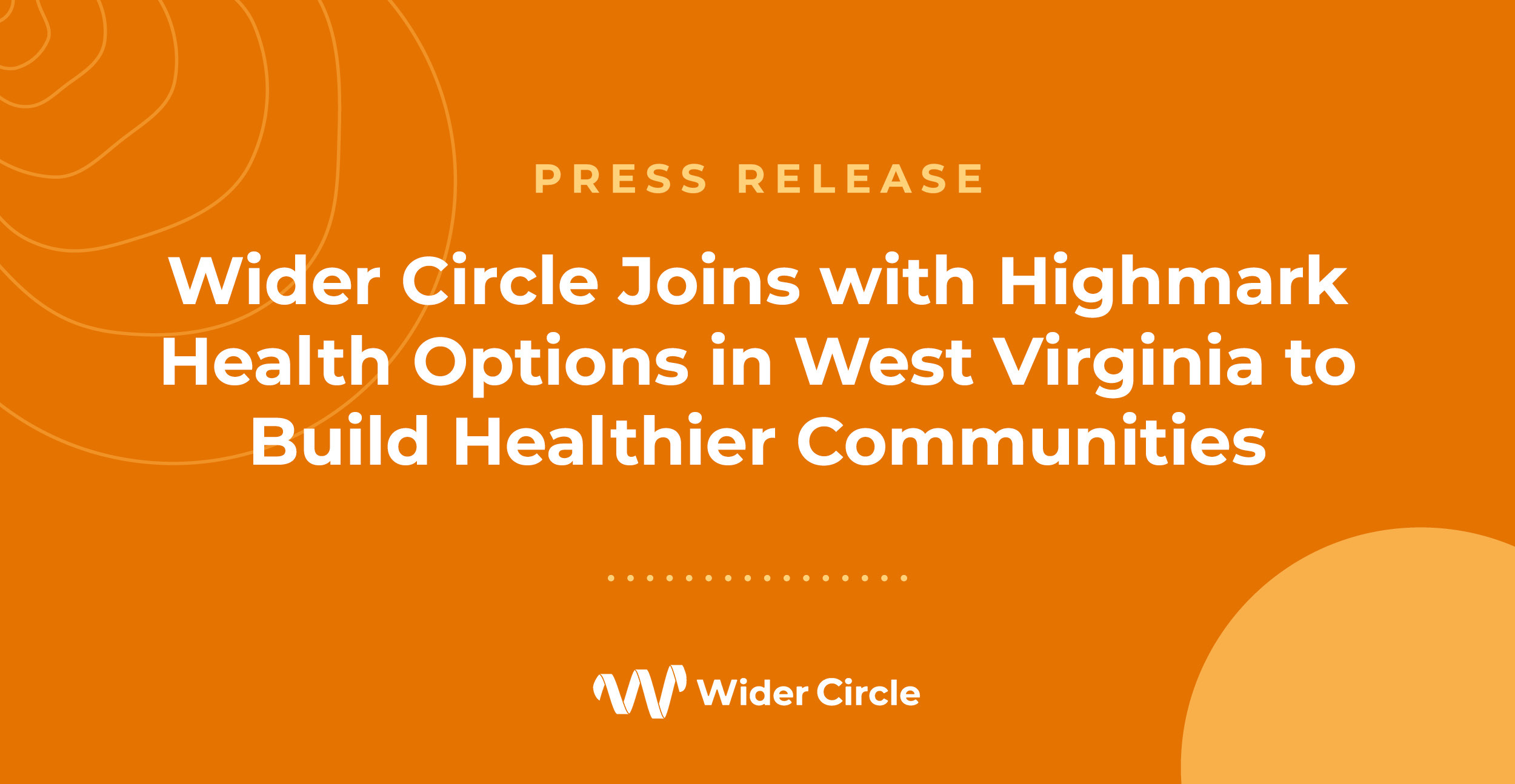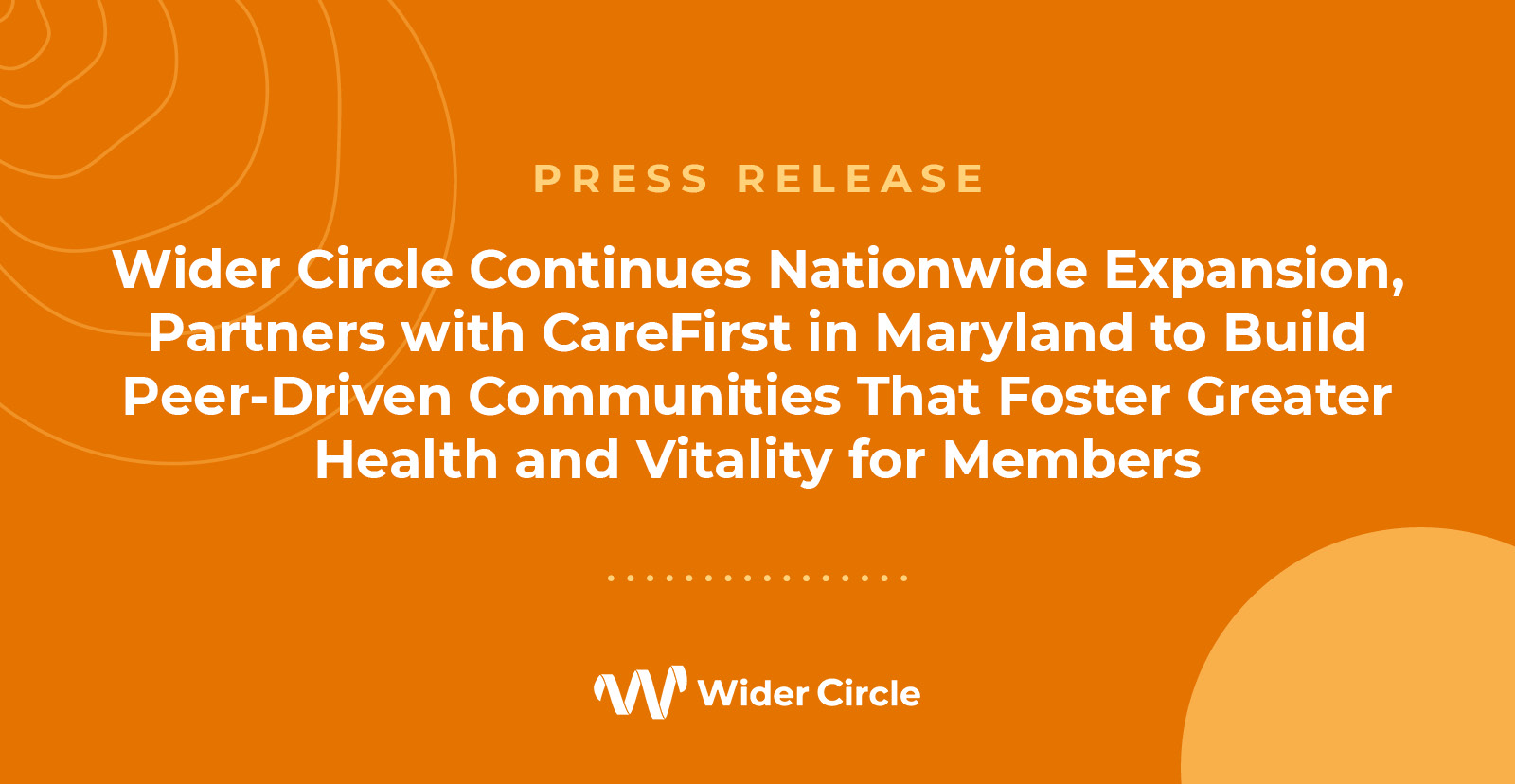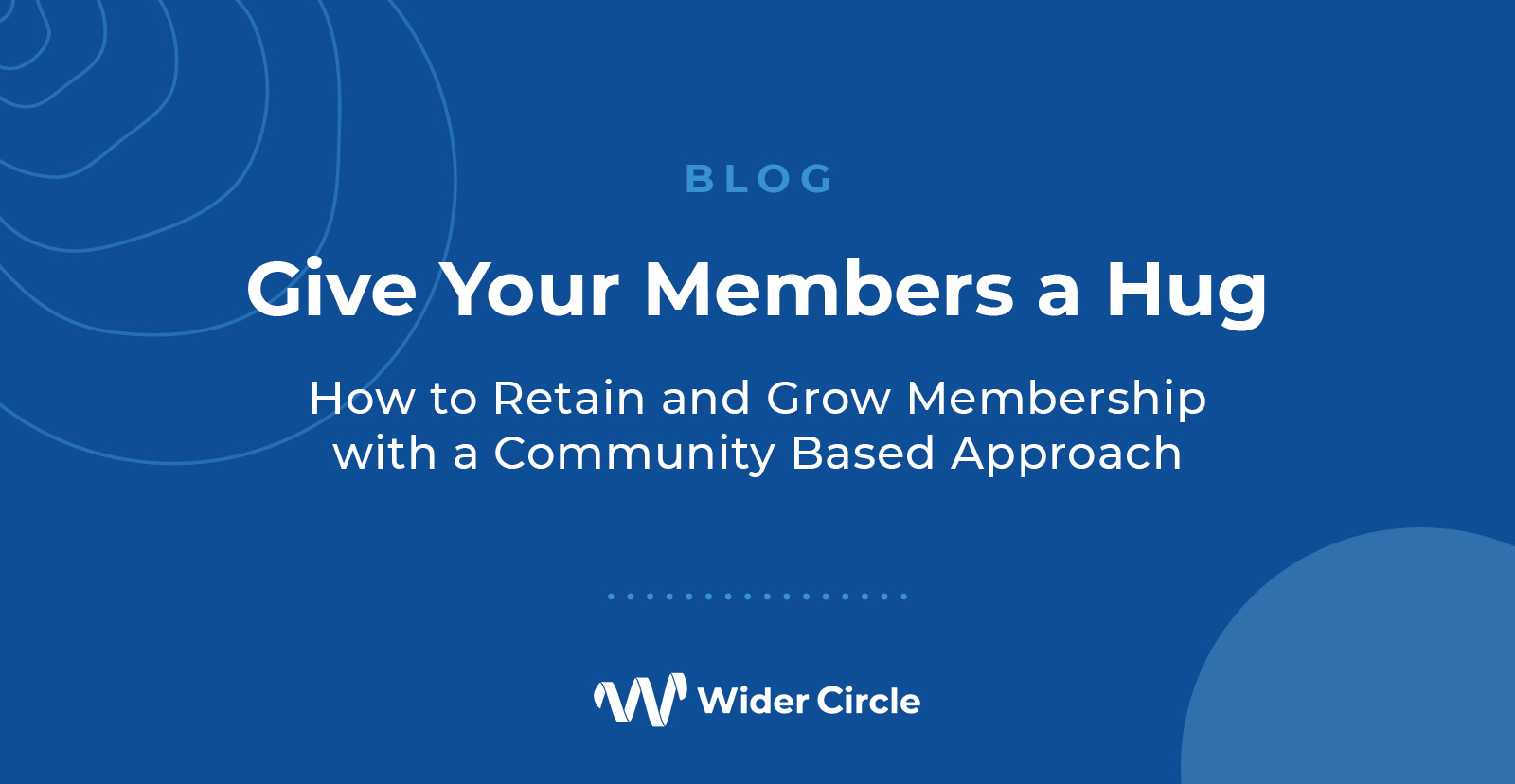
Recently our editorial team had a chance to catch up with chief medical officer, Claude Pinnock, MD. Find out why Dr. Pinnock decided to leave his post at Meta (f.k.a. Facebook) to dive into a new frontier of healthcare change, and what gets him out of bed in the morning. (His favorite morning brew is Illy brand coffee in a moka pot, if you were wondering.)
Q. Welcome to Wider Circle, Claude. We are so excited to have you on board as our new chief medical officer. So, let’s start off by talking a little bit about how you came to join our organization? How did Wider Circle come on your radar?
Wider Circle stood out to me as one of the few health start-ups that is truly focused on addressing social factors impacting health today. Social determinants of health account for anywhere from 30-80% of modifiable contributors to health outcomes. It’s wild and yet it makes so much sense. Wider Circle is an innovative company led by mission-driven folks who are actually addressing vulnerable populations at the community level and with a scalable model to make lasting impact on social determinants.
There’s also the ethical component. A few weeks on the job, I visited Detroit and shadowed some of our neighborhood canvassers – whose job is to introduce our program to members of our health plan sponsors – and I can honestly say I have never seen poverty like that. We have a duty in our healthcare system to look after these people in need, the individuals that are in survival mode every day. At Wider Circle we are creating safety nets to keep them from falling – not just sticking our finger in holes to stop the leaks. I believe anyone working on a Medicaid program needs to visit these neighborhoods to understand what we are trying to accomplish as an organization and the logistics of this task.
Finally, I was drawn to Wider Circle for personal reasons. Many people I know growing up in the UK would find a program like Wider Circle extremely beneficial. And should my parents ever need services like those offered I’d love to think they would be more widely available.
Q. And you came from Meta right, that must have been a huge change.
Yes, I recently left global strategic partnerships in health at Meta and while it was an extremely rewarding experience in many ways, I wanted to get my hands a bit dirtier when it came to having an actual impact on the communities we serve. I’m coming from a corporate giant where there was a team for everything, to a fast-growing start-up where I get to have more flexibility in my role and be more entrepreneurial. Here I can operate at the top of my license and truly leverage the breadth of my experience to make a maximum impact. How exciting is that?
Q. Exploring new opportunities to impact our healthcare system seems to be part of your DNA given your career history?
Public health has always been a personal passion of mine. And since the beginning of my clinical career as a practicing physician in the Cambridgeshire region in England I’ve seen what I would call a great deal of nonsense in the healthcare industry in terms of how things are being run. It was this frustration that ultimately led to me getting more involved in improving the quality of healthcare from a business perspective. And it has been the primary driver of my career decisions whether that be working at the International Consortium for Health Outcomes Measurement (ICHOM) or holding leadership positions addressing service redesign, quality improvement, and strategy in both public and private health sectors like Stanford University School of Medicine and Clarify Health Solutions.
Q. What do you see as the greatest opportunities for changing healthcare for the better?
Oh boy…if I had to narrow it down, I see three fundamental areas that need to be addressed in order for true change to take place.
First, we need to prioritize the importance of primary care. My wife graduated from medical school several years back, and I was shocked to see that in her graduating class, only three, yes three of her peers were pursuing a residency in primary care. In the UK 50 percent of providers are focused on primary care. This area is widely known to be the most cost effective and the backbone of health systems with great outcomes and lower costs, so why isn’t the US investing more in this area and primary and secondary prevention? We’re a sick care system not a healthcare system.
Then there is the fact that everyone talks about a free market in healthcare in the US but in reality, patients have very little choice, they don’t have a full picture of how much things cost, or how much their care will cost them in advance. There is absolutely no transparency there and no idea of what kinds of outcomes to expect. A total asymmetry of information. We need to create more incentives to build this free market concept and make it a reality and provide this information to consumers if we expect the free market to function.
And last but certainly not least, we simply do not do enough to address social determinants of health. So much of our mental and physical health is impacted by where we live, work and play and what kinds of resources we have access to – jobs, housing, food, etc. If we can reach vulnerable populations right where they live in a way that engenders trust and motivates them to take better care of themselves, then you start to see a scalable solution to tackling potentially critical and expensive problems at the preventative stage. We are starting to see the real world impact of that with Wider Circle’s hyper-local community programs.
Q. And what about us everyday Americans? If you had to name one change we could make to improve our health, what would it be?
If my old colleagues read this they’ll laugh because I’m going to talk about salt again. Salt is a huge driver of hypertension. We eat way too much of it and you get sensitized to it as well. If folks consumed 3 grams less salt a day, a very easy lifestyle change, it would lower the blood pressure in the population and probably cause an observable significant shift in global life expectancy.
Q. How would you describe your chief medical officer responsibilities at Wider Circle?
The chief medical officer role at a company like Wider Circle is full of possibilities as you can make the case for change both internally and then externally to create maximum impact. The best part is that two days are never the same. I’m bringing value to the sales function as I can speak clinician to clinician which is important in the market in which we operate. I’m also tasked with driving the Wider Circle research agenda which presents us with a huge opportunity to differentiate in the competitive landscape. This research can then be leveraged in our marketing efforts moving forward as well. Finally, I am tasked with thinking through our clinical models more deeply and identifying areas where Wider Circle’s intervention efforts could be a huge value add: pregnancy support, end stage renal disease, hospital readmissions and mental health, just to name a few. It’s a huge undertaking, and I couldn’t enjoy it more.
Q. What about your CMO job excites you when you wake up in the morning?
At Wider Circle I am facing a new set of challenges that really haven’t been solved before. It’s like operating on a new frontier. Seeing our teams on the ground and how much they care and believe in what we are doing, it’s just rewarding to be part of. I feel really passionate about helping my colleagues create true change in the communities they serve in the best possible way.
Q. Thank you for sharing your insights with us today, Claude. We are happy to have you help lead the charge on the new frontier of community-based healthcare! And might I add, you are looking pretty adventurous in that Wider Circle puffer vest.
Well, thank you. I never start my day without it. And my moka pot, of course.


